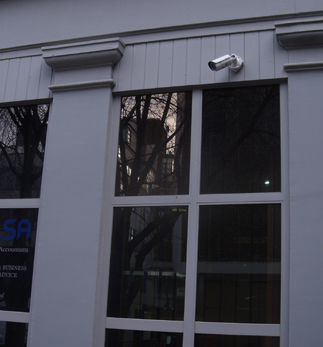Over 400,000 burglaries happen every year in the UK. This shocking figure is actually a decline in previous years, which undoubtedly is due to the popularity in security measures such as CCTV. But, the rate of theft is still far too high, especially as each case represents devastation on a personal level, writes John MacMahon, Director at Re:sure Security.
What’s more, antisocial behaviour and criminal damage can also take its toll and be very costly to rectify. It can also make the area around your home or business premises unsafe. That’s why it’s important to take steps to protect your property.
As mentioned, CCTV is extremely useful in the fight against crime. But as with any security measure, it needs to be installed correctly to yield the best results. Here are our top tips on installing CCTV cameras for optimal coverage to tell you more.
CCTV has been around for some time now, meaning the technology is now incredibly advanced compared to when it was first introduced. The latest systems record footage in 4K and offer motion and even heat sensor detection.
You can also choose to have remote CCTV monitoring, meaning a control room can not only see what’s happening at all times but speak to an intruder and instruct them that police have been called. They will also liaise with the police on your behalf to facilitate a quicker arrest if needed.
The CCTV system you choose is totally flexible to your needs. It pays to take the time to research which model and features are right for you. Avoid buying a particular model just because ‘it’s cheap’ – check what you get for your money, especially when its job will be to protect your valuable assets.
Positioning
The position of your CCTV cameras is undoubtedly the most essential aspect of its success. After all, the camera doesn’t cover your most vulnerable spots, it won’t be able to catch criminals in the act. Some CCTV cameras will have a limited frame range, and others will be adjustable. So, the type of camera you use and the range it’s able to cover will be hugely influential in where you place it.
As a general rule, you should position your cameras over doors, windows and any other possible entryways. This includes upper floors, which may be accessible via sheds, stairs and even wheelie bins that criminals will prop up against your walls to get in. Unfortunately, you have to think like a criminal as they will use any opportunity they can to gain access or create damage.
Blind spots
The last thing any CCTV owner wants is to try and retrieve crucial footage, only to find the location fell into a blind spot. This is a common occurrence especially if the coverage hasn’t been road-tested.
It can be helpful to have someone walk around the property ‘posing’ as an intruder so you can check your CCTV coverage. It might not be possible to have them in the shot at all times, but if you can’t see them where they are most likely to enter or cause damage, this is an issue that needs fixing promptly.
Obscured CCTV
Trees, hedges and other plants help a property to look more polished. But, if branches grow across the path of your CCTV and block the shot, it will render it useless. So, keep an eye out for this and undertake regular pruning especially in the spring and summer months.
In the colder months, leaves, snow and similar debris can build up on your CCTV camera lens. Spiders may also decide your CCTV looks like an attractive proposition for a web too. This is again something that can easily catch property owners out. In some cases, it may even attract criminals especially if they can visibly see the camera lens is covered over. Regular cleaning and checking of the image quality will avoid such problems.
Installation
Depending on the CCTV system you buy, it may require professional installation or be easy to install yourself. There’s no right or wrong here, but if you want to ensure the system not only works but provides optimal coverage, consulting a professional is advisable.
Think about it – if CCTV is your job, you’re going to know a thing or two about it! A fresh pair of eyes may even spot vulnerabilities that as a property owner, you wouldn’t have noticed. Above and beyond all, you need to be confident that everything is working as it should be, which can’t be guaranteed if you’re installing it alone and hoping for the best.
Before installing CCTV on your property, take time to pinpoint where the coverage is needed. Criminals will look to be as discreet as possible, and despite what you see on TV they don’t just operate in the dead of night. They could strike at any second given a chance.
But by covering their movements with CCTV that has been correctly optimised, you can catch them in the act. This is especially the case if the camera is linked to your phone or even a control room. Overall, CCTV is an excellent way to protect your property and everything within it.
About the author
John MacMahon has been the Managing Director of Re:sure Security since 2012. Visit https://resure.co.










